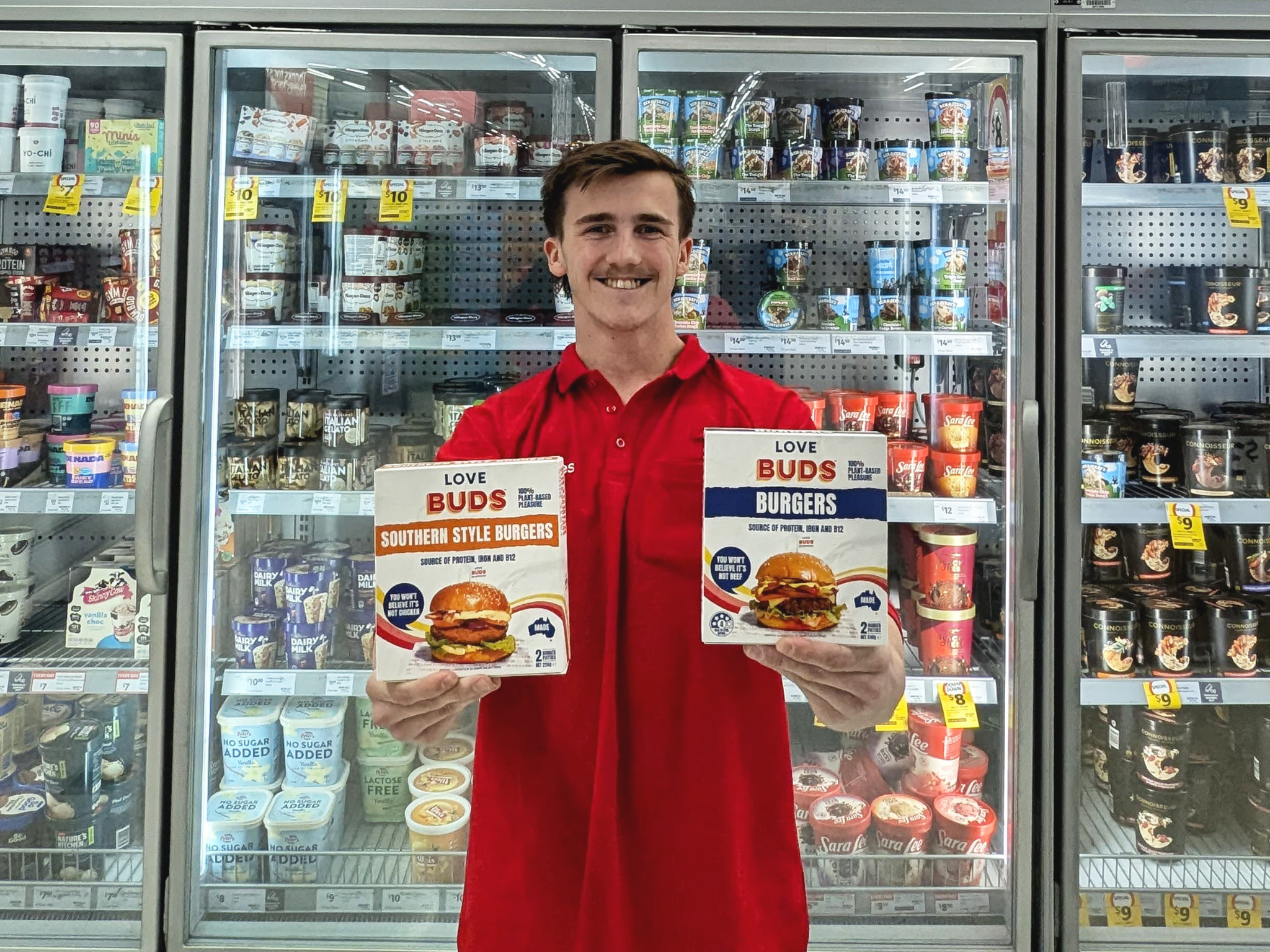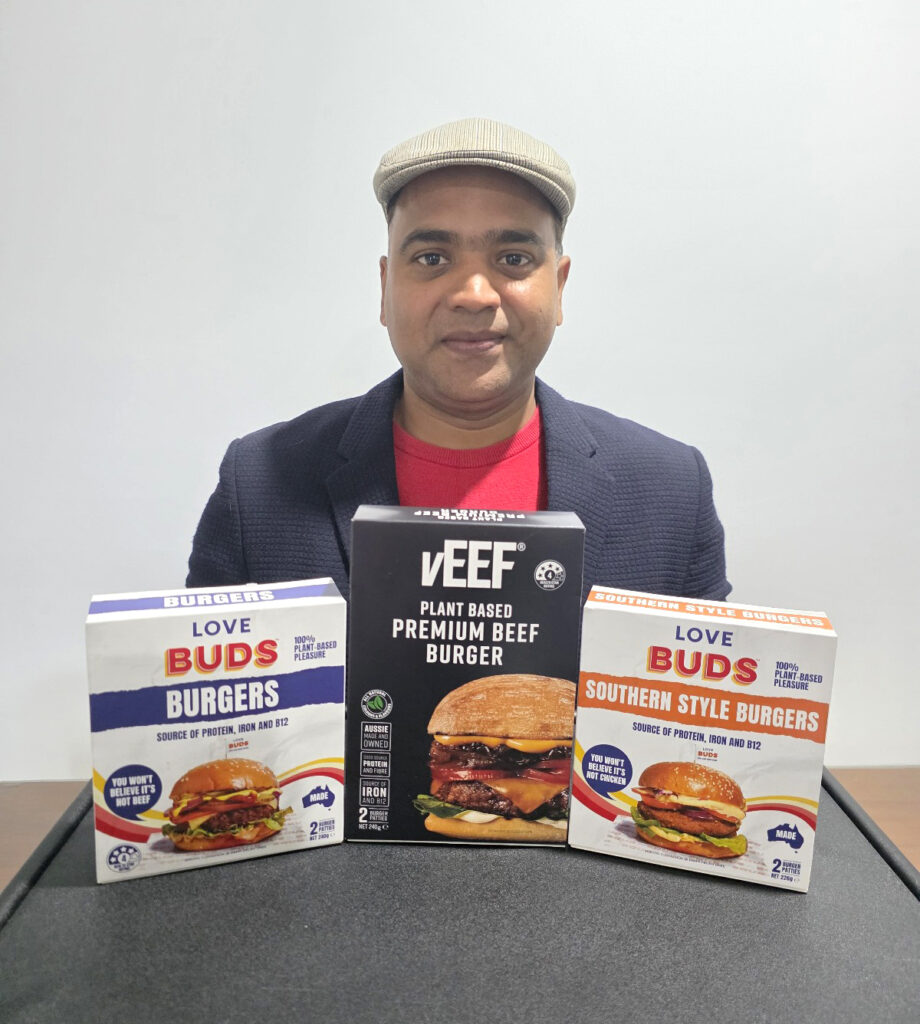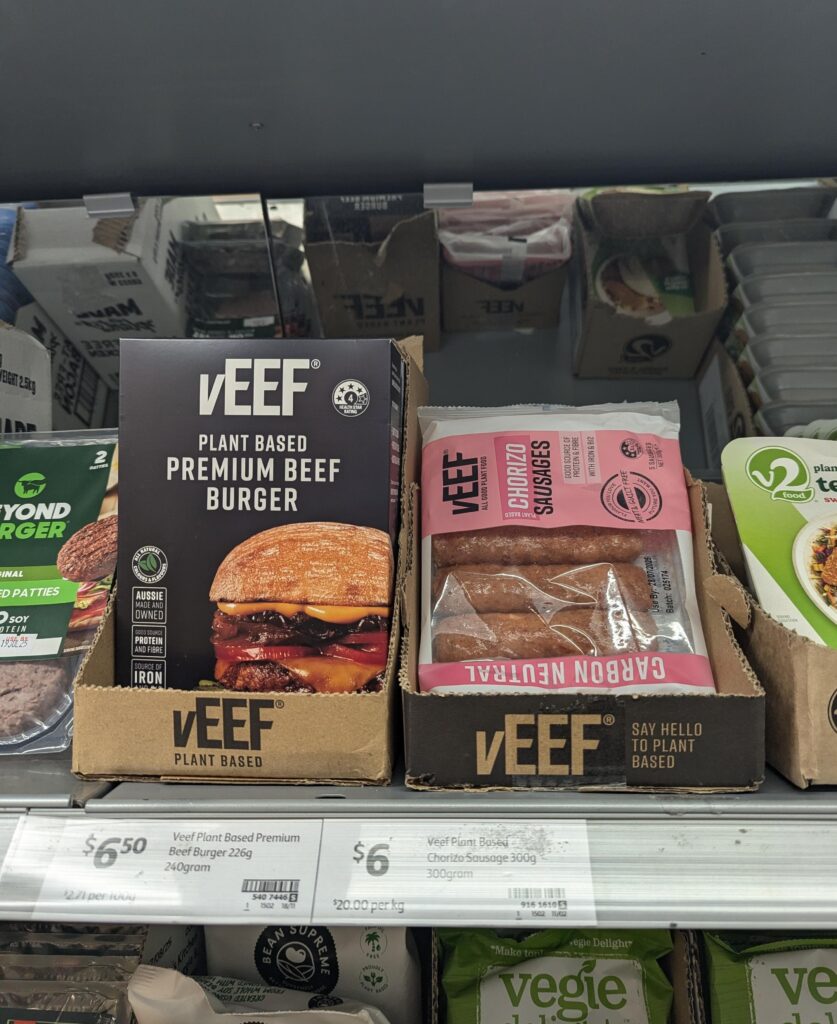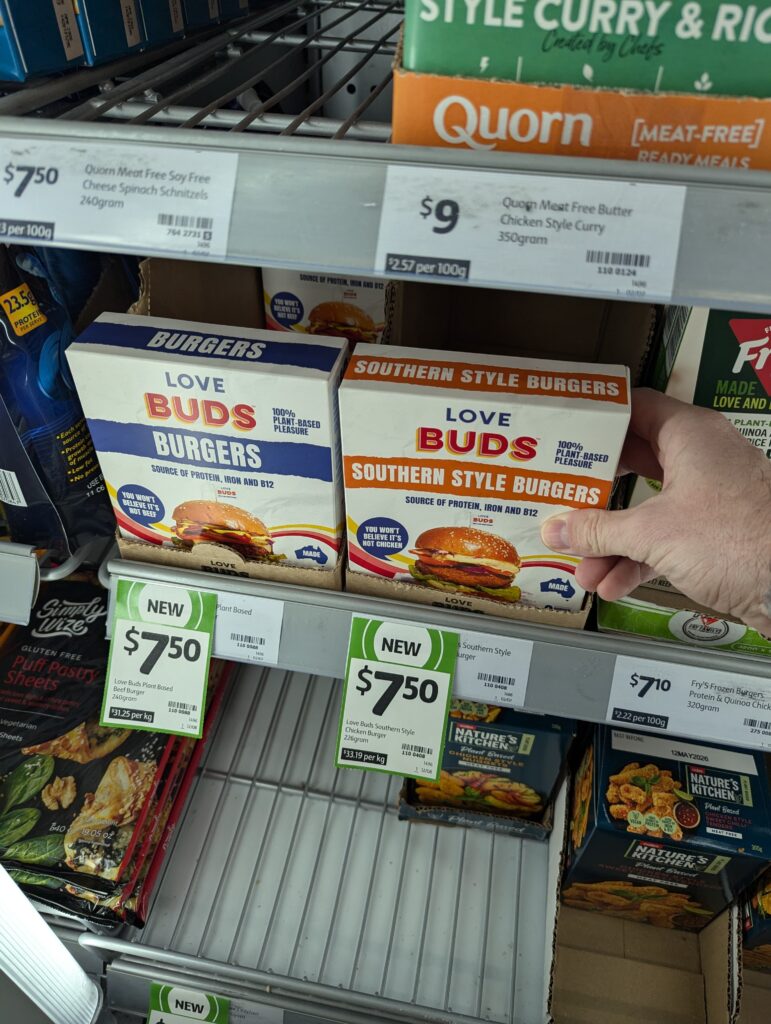
The Aussie Plant Based Co has re-entered the market with new vegan burgers, sausages and cheeses nine months after being acquired out of liquidation by Smart Foods.
Everybody loves a good comeback story. And the plant-based sector needs one now more than ever.
The Aussie Plant Based Co has delivered that with a return to supermarket shelves and restaurant menus nine months after it was rescued by Gold Coast manufacturer Smart Foods.
The company has launched plant-based meat products into 850 Coles stores, returned to the menu of Betty’s Burgers, and introduced a non-dairy cheese range for foodservice.
“Reviving an insolvent business is never straightforward. Many stakeholders had been burned and understandably found it difficult to separate us from the former company,” Smart Foods CEO Raghu Reddy told Green Queen.
“Rebuilding trust took time, transparency, and consistency. In some cases, the damage was too deep, and we had to make the tough decision to bring in new partners to fill those gaps. It’s been a challenging process, but one that has laid the groundwork for a stronger, more resilient business.”
How Smart Foods revived Aussie Plant Based Co

The Aussie Plant Based Co was formed in October 2023 as the result of a merger between Fënn Foods’s Veef brand and All G’s Love Buds label. The firm sold plant-based beef, pork and chicken products in retail (via Veef) and foodservice (via Love Buds) at over 6,000 distribution points.
Despite early momentum, it faced cash flow challenges that ended with the board deciding to wind down the business. It appointed liquidators who were soon in discussions with multiple prospective buyers, with Smart Foods emerging as the rescuer only eight days after it entered insolvency.
The manufacturer took over the Aussie Plant Based Co’s equipment, stock, brand names, and IP, and retained half of its workforce. Fënn Foods, meanwhile, ceased operations as an entity.
“The business had great products and potential, but lacked the operational focus and discipline needed to scale sustainably,” said Reddy. “There was a lot of energy put into brand and vision, but the backend cost control, supply chain, and margins didn’t keep up. That’s where things started to unravel.”
He decided to acquire the firm because he “still believed in the core quality of the products, the demand in the market, and the innovation”. “I knew with the right structure, financial discipline, and manufacturing foundation, we could turn it around and grow it properly. That’s exactly what we’ve been doing,” he said.
“We took a bold but strategic approach to turning the business around. One of our first moves was relocating our manufacturing facility to a more central location, which significantly reduced our overheads, particularly freight costs.
“The previous facility was based on the Sunshine Coast, a regional area two hours from the closest city in Brisbane, and nearly 20 hours by road from many of our key suppliers and customers. Given that everything moves by truck in Australia, the distance was a major barrier to efficiency and cost control. Relocating brought us closer to both suppliers and customers, allowing us to streamline operations.
“We also scaled back to a very lean and focused team. At the same time, we prioritised rebuilding key supplier relationships and sought out new partnerships where necessary.”
New owners had to re-pitch to retailers following supply issues

Veef’s burger has already been in the freezers of both Coles and Woolworths, while its sausages and mince are stocked in 900 of the latter’s stores. “Our Veef premium burger has been available in Coles for just over a year and was recently extended for a further 12 months in the latest range review. But the journey hasn’t been straightforward,” explained Reddy.
“Following the previous company’s insolvency, major retailers faced extended periods of non-supply and empty shelves. Under new ownership, we had to re-pitch to retailers, rebuild trust, and establish an entirely new vendor setup from scratch.”
He added: “Our Veef sausages and mince have been ranged in Woolworths since September last year, but again, they disappeared from shelves during the previous company’s breakdown, just one month after its initial launch.
“Regaining distribution in both major retailers took persistence, transparency, and a lot of behind-the-scenes work. That’s why we’re especially proud not only to be back on shelf, but to be expanding, including launching entirely new brands like Love Buds, which was previously exclusive to foodservice, into national retail.”
The new products include two burgers under the Love Buds brand, and a chilled sausage SKU under the Veef label. Aussie Plant-Based Co is also selling vegan mozzarella shreds and Cheddar shreds and slices exclusively to foodservice customers. Speaking of which, Love Buds’s signature burger is back on the Betty’s Burgers menu.
The company is now developing new product lines for Woolworths. And it’s actively planning rollouts with discount retailer Aldi and bulk-buy chain Costco.
Plant-based businesses must ‘balance purpose with commercial strategy’

The return of the Aussie Plant Based Co’s products comes at a curious time for the country’s plant-based sector. Two in five Australians said they were either reducing or not consuming meat at all in 2024, and wholesale demand for meat alternatives in foodservice rose by 59% in 2023.
But retail sales dropped by 1% annually between 2020 and 2023, and these products are yet to reach 65% of Australians. Of those who have tried them, only 22% say they’d buy them again, citing poor taste, high prices, and overprocessing as the main detractors. It signals a gap in consumer liking and an uphill battle for brands in the space.
It’s why the Aussie Plant Based Co is focusing on whole-food and vegetable-based options for its upcoming Woolworths range, mirroring trends seen in the UK and the US. These products are “in direct response to shifting consumer preferences”, Reddy noted.
Rising costs and the global investment decline have compounded the issue, contributing to the closure of several plant-based companies in the region. Last year, ProForm Foods, the company behind the Meet range of plant-based analogues, wound down after entering voluntary administration, while New Zealand-based Sunfed Meats shuttered after nearly a decade in operation.
“Many brands emerged during the plant-based investment boom, chasing rapid growth without laying the foundations for long-term profitability. In some cases, basic business fundamentals were overlooked with the assumption that they could be worked out later,” said Reddy. “But when investor interest in the category slowed and funding dried up, those without a sustainable model simply couldn’t stay afloat.”
He adds that there’s a strong future for businesses with a clear path to profitability and strong execution. “For companies to succeed in the current landscape, they need to focus on unit economics and operational efficiency, not just top-line growth. It’s about balancing purpose with solid commercial strategy.”
Indeed, The Aussie Plant Based Co is one of several meat-free businesses that have successfully emerged from the brink. Domestically, Melbourne-based manufacturer Australian Plant Proteins was acquired by investment firm My Co 10 months after entering voluntary administration, and returned to full operations in May. In New Zealand, catering company The Sustainable Food Co fell to a similar fate before being taken over by fresh ownership, which relaunched the business last week.
Globally, over the past couple of years, Mycorena was acquired by fellow mycoprotein firm Naplasol a month after filing for bankruptcy, VBites was rescued out of administration by owner Heather Mills, and pet food maker Wild Earth was bought out of bankruptcy by InvenTel.
The post Aussie Plant Based Co Makes Comeback with New Products, Nine Months After Liquidation appeared first on Green Queen.
This post was originally published on Green Queen.